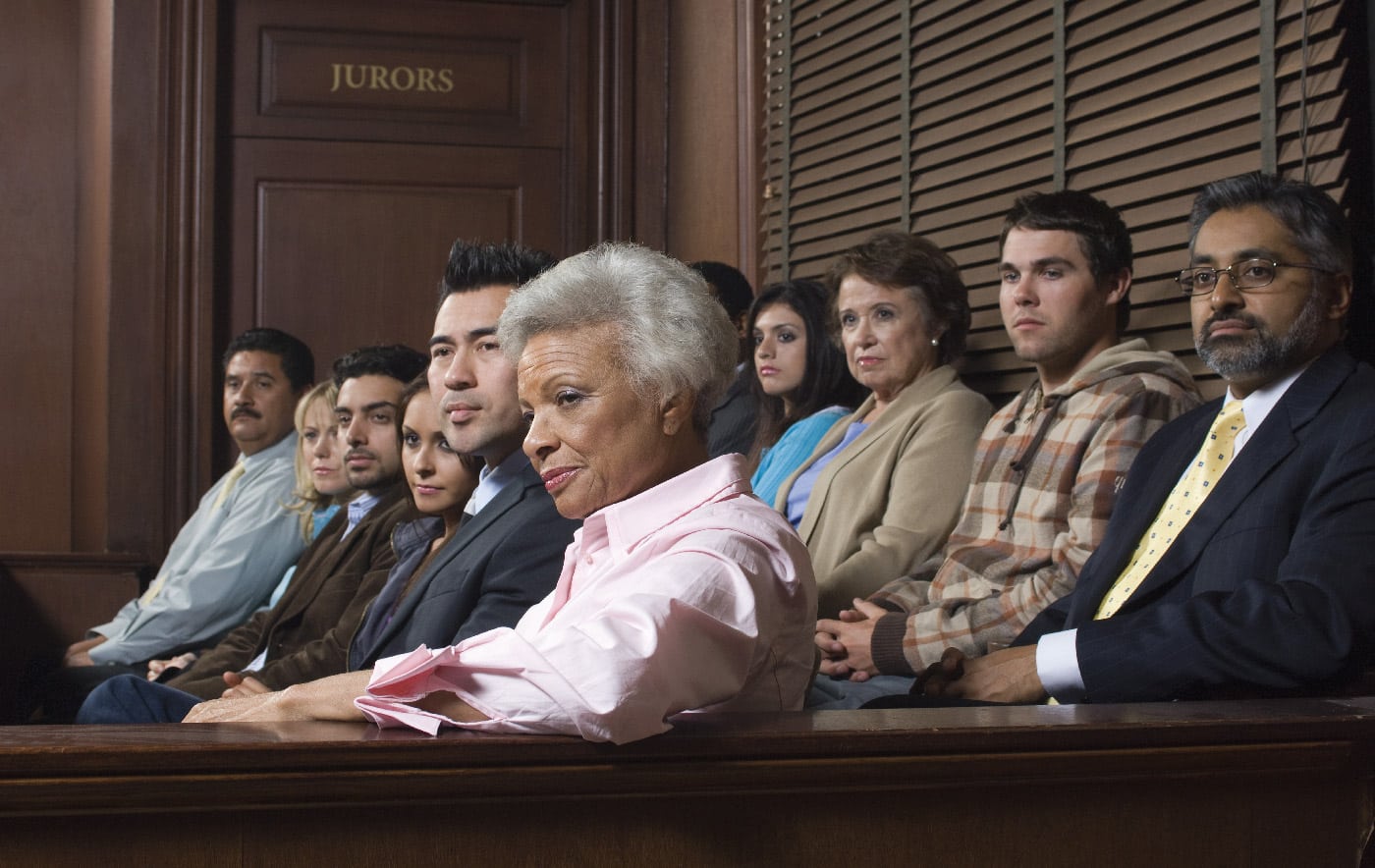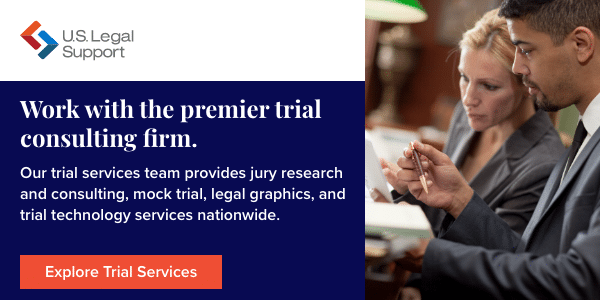Refine Your Case With Mock Trials & Focus Groups

When a potential client brings you a case with compelling facts that stack up logically, it might seem like a slam dunk. But winning a trial isn’t solely—or, in some cases, even primarily—about facts. You need to craft a case presentation that anticipates potential landmines in the road: jury prejudices and preconceptions, counter arguments, biases, and emotional baggage.
This is where mock trials and focus groups come in.
Mock trials and focus groups are two tools that help legal teams predict how their strategy and case may be received and can provide insights to better prepare for jury selection. They’re too small in scale to replace quantitative research, but when managed and executed properly, can provide invaluable qualitative information to help prepare your case strategy.
What Is a Focus Group?
Focus groups are often used as part of marketing strategies—testing how potential customers will react to new products, advertising claims and messages, packaging, etc.
Similarly, a legal focus group allows you to gather people demographically similar to a potential jury and test out their reactions to individual elements or your entire case.
A professional jury consultant acts as a neutral moderator to present aspects you want to test, such as:
- Evidence
- Trial exhibit plans, videos, or graphics
- Recorded depositions or live witness testimony
- Opening or closing argument scripts
- Cross-examination questions
How will you get started on building a case? Knowing which thematic paths to follow in terms of arguments and exhibits that will resonate with decision-makers can improve your chances of earlier case resolution or a positive trial outcome.
Focus groups can help you and your legal team by:
- Clarifying which arguments to invest in based on how they may resonate with a jury
- Anticipating juror reactions, questions, and doubts
- Identifying missing elements needed to build a total picture for jurors
- Identifying information deemed irrelevant, contradictory, or harmful to an argument
- Getting real-time feedback on pinpointed issues
Use a focus group when you want to:
- Gain early insight to help you plan arguments and further research your trial preparation
- Isolate specific arguments, facts, or exhibits to test with an audience
- Test multiple arguments, interpretations, or stories with an audience
- Ensure important witness testimony is understandable and solicits the desired outcome
- Identify perceived value of a case to aid in actions related to settlement size
- Get insightful information without needing to prepare and be present for a mock trial
What Is a Mock Trial?
Mock trials mimic the total experience of a courtroom trial and last longer than legal focus groups. In short, it’s the closest to a dress rehearsal for the main event.
Mock trials can include:
- Both defense and prosecution representation
- Opening and closing arguments
- Witness testimony
- Preparing for cross-examination
- Exhibit and demonstrative display
Mock trial benefits include:
- Testing both sides of a case: prosecution and defense
- Identifying witness effectiveness and weaknesses in a trial environment
- Pinpointing attention deficits due to duration, confusion, or presentation
- Getting detailed feedback from mock jurors
When to use a mock trial:
- When a trial (versus settlement) is the likely outcome
- When emotional response is a key factor of a desired jury outcome
- In the weeks or months leading up to a trial date to identify potential landmines and refine arguments
- When a team needs to prepare for a specific type of case or practice area
Conducting a Successful Mock Trial or Focus Group
In of itself, a mock trial or focus group can be interesting and provide food for thought, but making your investment pay off requires converting the event outcome and data into specific actions that benefit your arguments, and, ultimately, your client. Before you get to that point, however, there are a lot of details to arrange.
Once you’ve decided when and how to use mock trial or focus group services, you’ll need to work with a professional trial services partner to:
- Identify a preferred format and location
- Secure appropriate trial team participants
- Coordinate the scheduling and communication
- Arrange for recording, virtual meeting, and/or transcription services
- Prepare questionnaires and/or scripts
- Conduct the session
- Provide technical support
- Analyze feedback and results
Once the event is complete, steps include:
- Compile and analyze the results
- Interpret and convert results into actionable recommendations
- Decide whether additional focus groups or mock trials will be useful to the case
Unlike your case, the goal of a mock trial or focus group isn’t to win. Instead, use these events to gather as much feedback and input as possible before adjusting and refining your strategy and plan.
Partner with U.S. Legal Support for Trial Services
With nearly 30 years’ experience in litigation support, U.S. Legal Support, together with our trial services partners at TrialQuest, provides a full suite of mock trial, focus group, and jury and/or venue research study options. With in-person and remote capabilities and real-time participant response technology, you’ll have the first-person testing needed to adjust themes, case storytelling, and key arguments.
Plus, we also offer witness preparation, legal graphics, trial demonstratives, trial presentation, jury consulting services, and more. Contact us today by phone, email, or website request form to discuss how we can help with your trial planning and preparation.
Sources:
- The Trial Network. Think Inside the Box: When to Enlist Jury Consultants and Conduct Pretrial Research. https://trial.com/wp-content/uploads/2020/01/11-Metcalf.pdf

Editoral Policy
Content published on the U.S. Legal Support blog is reviewed by professionals in the legal and litigation support services field to help ensure accurate information. The information provided in this blog is for informational purposes only and should not be construed as legal advice for attorneys or clients.


